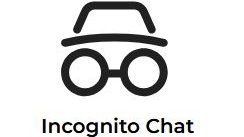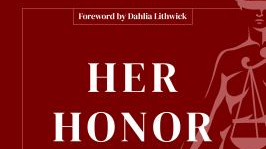NEH grant to transform UChicago’s creation and delivery of digital collections and research data

The Library and the Division of the Humanities will build UChicagoNode to enable field-changing research and make knowledge open and accessible to all

The National Endowment for the Humanities is awarding the University of Chicago nearly $1 million to transform UChicago’s creation, stewardship, and delivery of digital collections and research data. Working together, the University of Chicago Library and Division of the Humanities will use the grant to build a new digital structure, UChicagoNode—the core of what will eventually be a network extending and enhancing the practice of digital research at UChicago and around the world. The University is committed to raising an additional $4 million to fulfill the vision for this project.
Treasure troves of more than 200 digital collections exist across the University, but they are found in a wide range of unconnected systems, including several hundred terabytes of digital content held at the Library. UChicagoNode will give researchers a single place to go to discover available digital collections through a unified, open access platform. It will provide a long-term home for content created as part of research and teaching at UChicago, contributed by partners from outside the University, and digitized by the Library. Future scholars will also benefit from UChicagoNode because it will provide an established infrastructure for a diverse range of digital collections and will break down barriers between traditionally siloed datasets. The collections will exist as datasets that can be used with machine analysis, natural language processing, spatial mapping, and other AI-based explorations.
Non-specialists often find it difficult to discover and locate such widely distributed information, and UChicagoNode will provide more intuitive ways to find and engage across these different digital collections. The easier access it will offer to UChicago resources will also strengthen the University’s community engagement and partnerships. The wealth of legacy collections at UChicago will be available in modern sustainable and accessible interfaces. Researchers new to the digital humanities will have guides and tools to help them begin.
Once this integrated infrastructure is in place, scholars researching the history of housing on the South Side of Chicago, for instance, could easily discover videos from the Guerrilla TV project on the demolition of Cabrini Green, digitized documents from the Ida B. Wells archival collection on the Chicago Housing Authority’s Ida B. Wells Homes, and historically relevant georeferenced maps from the NEH-funded Mapping Chicagoland project, which they could use to build data layers from their research in order to visualize urban change. Similarly, linguists could access UChicagoNode, for example, to investigate and analyze the use of verbs in a chosen semantic domain from a range of texts such as Sumerian myths to the Middle English narrative poem Piers Plowman to 19th-century French philosophical treatises.

“Currently, material held by libraries across the world is effectively inaccessible because it cannot be easily discovered and accessed,” said Torsten Reimer, University Librarian and Dean of the University Library. “At the same time, many fascinating outputs of scholarship on the web are at risk of being lost. The University of Chicago Library is committed to opening its collections, to ensure persistent and open access to scholarship and to contribute to a global knowledge environment that is open, accessible and equitable."
In 1982 the Division of the Humanities laid the ground for its digital research infrastructure with the founding of the American and French Research on the Treasury of the French Language (ARTFL) project. Other projects and services such as the Online Cultural and Historical Research Environment (OCHRE) have followed.
“The UChicagoNode project will build on the Division’s strengths by better integrating existing infrastructures that will help drive our ambitious agenda in research and teaching. It also builds on the longstanding partnership with the University of Chicago Library, which already provides content, expertise in metadata and preservation, and even hosting for some of our projects,” said Anne Robertson, Dean of the Division of the Humanities.
UChicagoNode will provide a robust and accessible infrastructure for Library collections and Humanities research outputs at the University of Chicago, ensuring continuous access to a wealth of information. “Over time,” Dean Reimer said, “we intend to add more nodes across different disciplines and academic fields, with the ambition to create a linked network that preserves and opens the field-defining research of UChicago scholars to the world."



